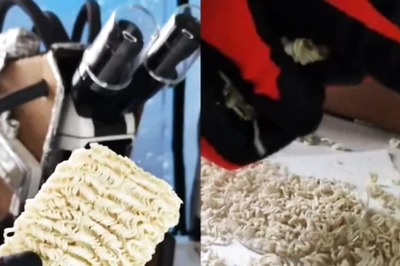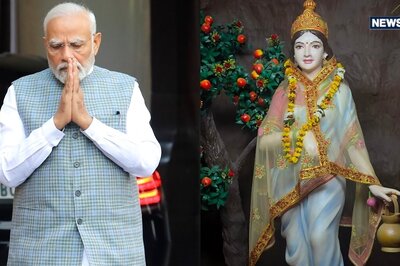
views
New Delhi: The Delhi High Court on Monday refused to stay its earlier order asking veteran Congress leader ND Tiwari to undergo a DNA test on a paternity suit filed by a youth claiming himself to be his biological son.
A division bench of justices Vikramajit Sen and Siddharth Mridul refused to give any relief to the leader while reserving its order on an appeal by him against the high court's earlier order by a single-judge bench.
Tiwari had challenged the high court's single-bench order of December 23 asking the leader to undergo DNA test. The court, however, granted no stay on the proceedings by the joint registrar tomorrow, for fixing a date for collection of Tiwari's blood samples for DNA test.
The 31-year-old youth, Rohit Shekhar, who claims to be Tiwari's biological son born out of the leader's relationship with his mother Ujjwala Sharma, had moved the court seeking DNA test of Tiwari.
The 85-year-old Tiwari, who had to resign as Andhra Pradesh Governor in 2009 amid allegations of sexual misconduct against him, had moved the High Court's division bench contending that its earlier order by Justice Ravindra Bhatt asking him to undergo DNA test was erroneous and illegal.
Tiwari, who is former chief minister of undivided Uttar Pradesh and later of Uttarakhand, had denied that he ever had any physical relationship with Ujjwala Sharma, Shekhar's mother and a Congress activist.
Terming Justice Bhat's order as "erroneous", Tiwari's counsel contended before the division bench that the marriage of Shekhar's mother to her husband was subsisting at the time of his birth and so Shekhar cannot be said to be legally entitled to seek his DNA test to determine if he was his biological father.
"The single judge order asking the leader to undergo the DNA test was erroneous as a legal and valid marriage was subsisting between Ujjwala Sharma and Bimal Prasad Sharma, the legitimate father of Rohit Shekhar," senior advocate Ashok Desai, appearing for Tiwari, said.
Desai argued that the words 'paternity' and 'legitimacy' were interchangeable and no distinction can be drawn between them.
"By drawing distinction between words, paternity and legitimacy, the single judge erred and failed to appreciate the fact that enacting the law is not within the purview of the judiciary and in any case, the High Court has no power of making any law," Desai said.
Shekhar's counsel supported the single judge ruling, saying that it was a reasoned judgement and need not be interfered with.




















Comments
0 comment